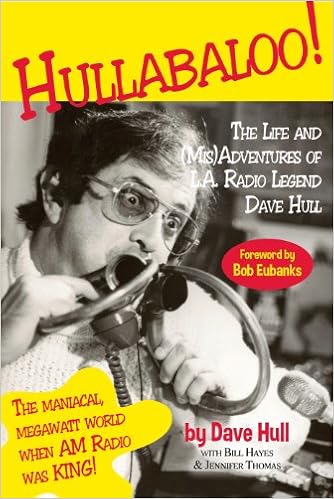JAZZ SINGER LYN STANLEY – NEWEST ALBUM, INTERLUDES
The female vocalist pool is the most competitive corner of the jazz market. While jazz may account for about one percent of all recording sales, there’s never a shortage of women jazz singers. That continual glut makes the ascendance of Lyn Stanley all the more impressive. Since 2011 she’s gone from an unknown to international status with sales of 26,000 albums.
Her 2013 debut Lost in Romance quickly took off and sold 15,000 units worldwide. The follow-up, Potions From The 50’S (2014), like its predecessor, went to #1 on CDBaby.com. Taiwanese author Jack Liu named it number six of the greatest hundred audiophile vinyl albums of all time in his encyclopedic All About Vinylbook.
The success of her first album clued her in to the potential for the audiophile market. Lyn recorded the successor, Potions, on analog tape—the Holy Grail of 1950s recording standards. Her choice of material and the album’s warm sound formed a natural marriage for Stanley and her sound-conscious audience.
Tall and elegant, Lyn can’t be mistaken for anyone else. She’s not a glib hair-flipper, a piano-playing introvert, a giggler, a shouter, a scat robot, or a faux Billie, Ella, Sarah, Carmen or Betty. Stanley creates a sultry mood that evokes romance, connects the lyric to the listener, and affirms the timeless musical values of the Great American Songbook. Audiences leave feeling that they’ve just had an emotional experience.
“She’s got a really good voice,” says pianist Bill Cunliffe, “a very lovely timbre. She understands the lyric and is able to communicate it to the audience.”
Her burnished alto has earned Lyn a considerable following in Asia and Europe. Those audiences appreciate the state-of-the-art audiophile quality of her recordings, which sell almost twice as many vinyl copies as they do CDs. Lyn was in the vanguard of the return-to-vinyl craze.
She chooses her songs experientially. “I’ve been through a lot,” she states, “and if I don’t have it in my background, I can’t sing it. When I’m singing, I try to see in my mind where I was at a time in my life.”
Lost in Romance has songs by Irving Berlin, Michel Legrand, Johnny Mercer and Harold Arlen, Hoagy Carmichael and other great songwriters. Music critic Michael Fremer pronounced Lyn “chanteuse extraordinaire” on the strength of it. “It was a concept album,” Lyn points out. “When you hear all of those songs in sequence, you hear a story unfold.”
Her latest, Interludes (2015) pays tribute to the song sirens who were sexually assured, yet never gauche: Peggy Lee, Julie London, Rosemary Clooney and Doris Day. “You don’t have to take your clothes off,” Stanley wryly notes, “to present yourself as sensual.”
Pianist Mike Garson, David Bowie’s musical director, plays on Interludes. “Lyn captivates audiences,” he notes, “and brings them a real feeling of nostalgia.”
Music was always part of Stanley’s life. Her mother was a spirited jitterbug dancer, her father was an enthusiastic amateur jazz pianist and her grandfather was a trained opera singer. Despite the grounding, Stanley’s mother steered her toward a corporate profession. College, a communications degree, a Ph.D. program, marriage, and a career as a successful businesswoman took her elsewhere.
Lyn rediscovered music through dance. She earned three first places in USA Championship DanceSport in 2010, and she placed third in a World title Pro/Am event. She then sought out the late pianist Paul Smith, and asked for a hearing. Vocal coach Annette Warren Smith, his widow, describes their reaction: “We couldn’t get over how good she was. She knew she was a great dancer but she didn’t know how good she was as a singer.”
Stanley didn’t take on professional singing as a lark. She formulated a game plan that included recording herself in the best possible settings. Her musicians include the best in the Hollywood studios: Wrecking Crew veterans bassist Chuck Berghofer and pianists Mike Lang and Tom Ranier; renowned pianist-arranger-musical directors Mike Garson, Tamir Hendelmen and Bill Cunliffe; great jazz soloists like saxophonists Rickey Woodard and Bob Sheppard, trumpeter Gilbert Castellanos and trombonist Bob McChesney; Gold Standard drummers Joe LaBarbera, Jeff Hamilton and Paul Kriebich among them. New York virtuosos like pianist Kenny Werner (also her producer for Potions [from the 50s] and harmonica player, Hendrik Meurkens grace her albums with their insightful performances.
One of her arrangers trained under veteran Sammy Nestico, whose charts for Basie and Sinatra are legend. After listening to Interludes, Nestico wrote in an email: “She is excellent…what a thrill to work with great talent.”
Stanley has cannily directed her music toward the worldwide audiophile demographic. Her albums are sensations as much for the high-grade sound as for the music and the A-list players. Unlike many singers, she’ll never have to live down inferior early recordings. Potionswas released as a vinyl album, SACD stereo hybrid (for Blu Ray and CD players), as a 180-gram double-45 vinyl, a reel-to-reel tape, and on CDBaby.com as downloads.
She uses the Capitol Records Studio and 23-time Grammy winning engineer Al Schmitt sits at the board on her sessions. “Lyn’s a very impressive woman,” he states, “and she’s done this all on her own—no manager, producer or booker. She checks around, finds all the best people and gets them. I use the same kind of tape for her that I do for Paul McCartney, Bob Dylan and Neil Young. She wants the best possible quality and I’m always flattered when she asks for me.”
Post-production wizard Bernie Grundman is known particularly for mastering jazz recordings (he’s mixed a lot of Diana Krall’s music) and he’s the only one Stanley has ever used. “Lyn’s what an artist should be,” he maintains. “She’s got a nice voice and you can hear her steady growth from the first album, which had some cabaret to her jazz. And now she’s a more complete jazz singer.”
“Lyn’s very aware that you have to pursue your art,” Grundman continues. “All of the great ones do. By striving for perfection they get closer and they grow as performers. She’s really going to get somewhere.”
She’s also cultivated an audience in Japan, where Stanley performed two concerts in October 2015. “Once they found out I market toward the audiophiles,” she says, “they became interested in me.” A major Japanese analog publication gave her a recent two-page spread.
“The recordings are intersections in her life,” pianist Lang points out. “They’re real documents.”
In 2015, Lyn’s tour schedule included several performances in Los Angeles, and shows in Chicago, Washington DC, Atlanta, Munich Germany and Tokyo Japan.
Where does Lyn Stanley go from here? “I always try to up the game,” she advises. Venues with high profile intimate theatres like Kennedy Center’s Terrace Theatre, Carnegie Hall’s Weill Recital Hall and other similar performing arts programs are on her radar.
As of this writing, Lyn Stanley’s new album “Interludes” is already charting in the top 90 album spins on national USA jazz radio after just three weeks.
















